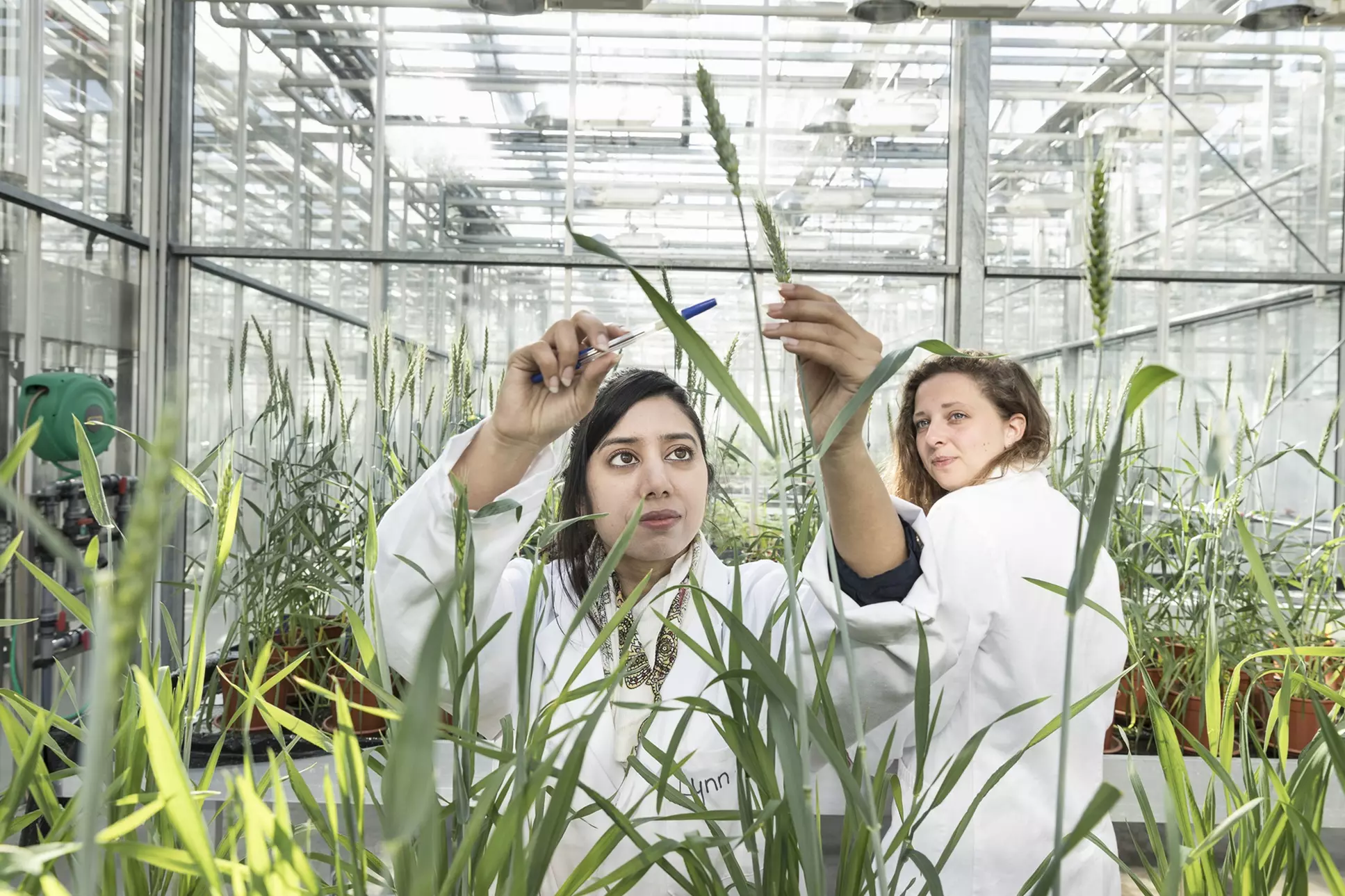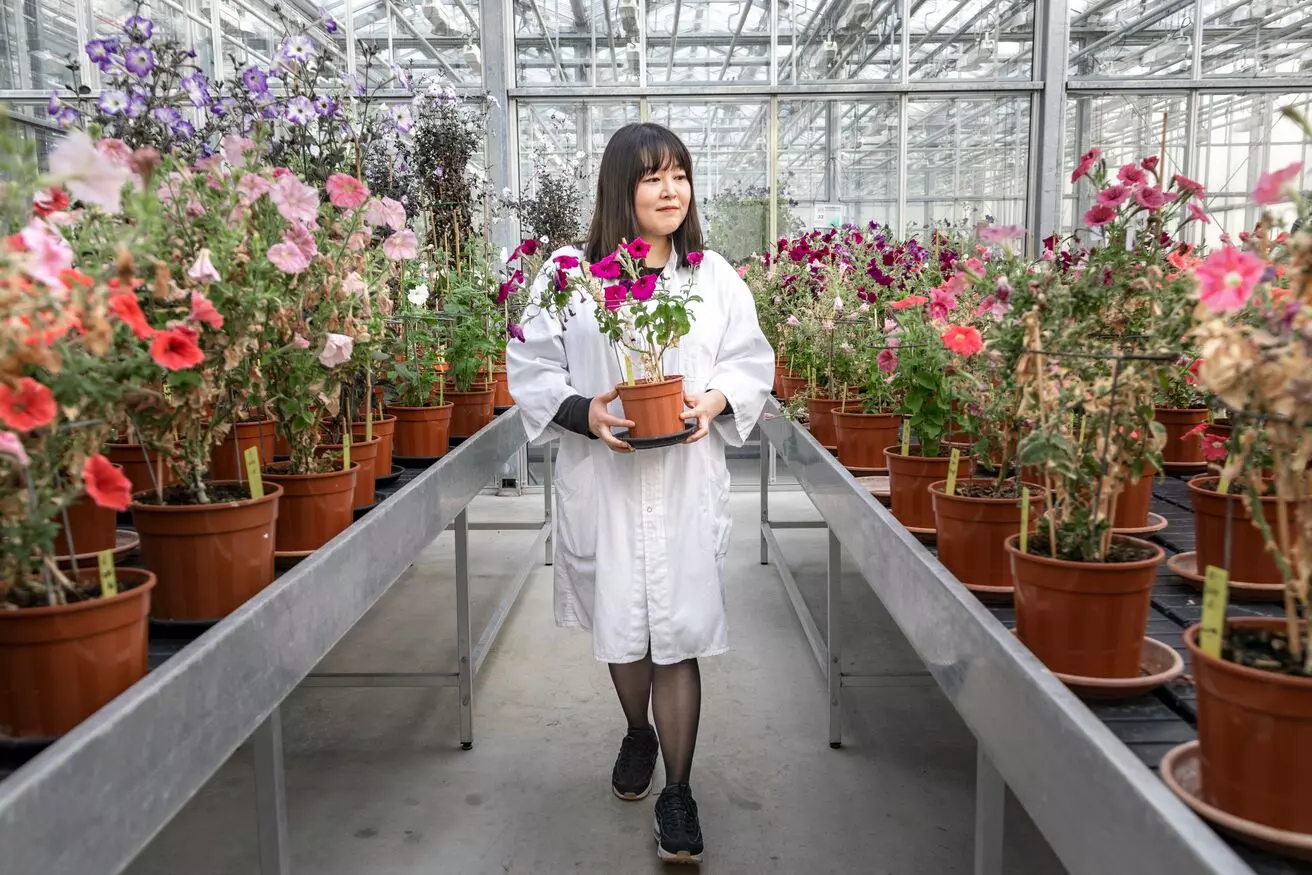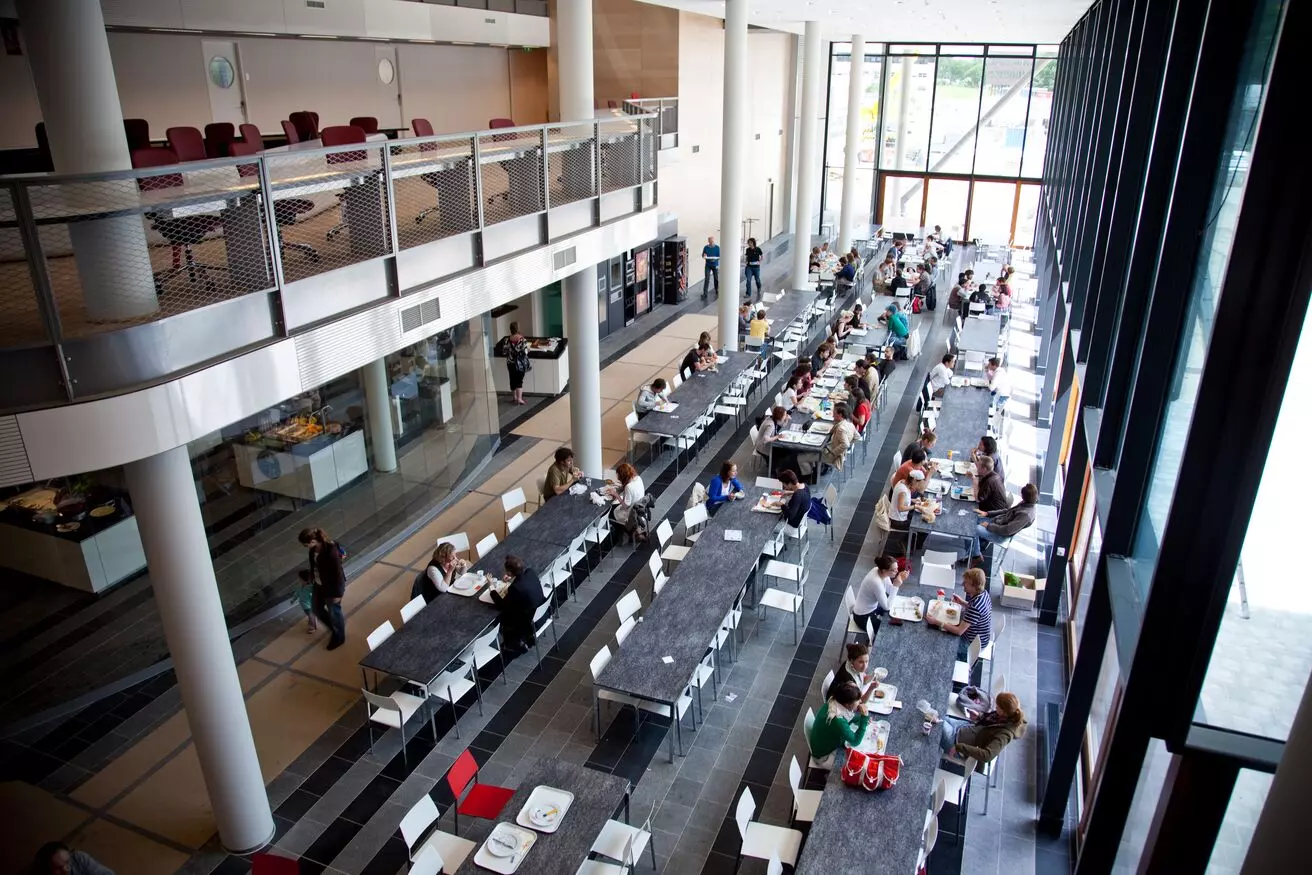Are you fascinated by the way early life factors can influence the brain and its structure and functioning in later life? Do you want to know whether early life stress can lead to Alzheimer’s Disease and how? Do you enjoy working in a lab with preclinical models and at the same time enjoy working with human data? Then this position might be perfect for you!
Are you fascinated by the way early life factors can influence the brain and its structure and functioning in later life? Do you want to know whether early life stress can lead to Alzheimer’s Disease and how? Do you enjoy working in a lab with preclinical models and at the same time enjoy working with human data? Then this position might be perfect for you!
Working at the UvA
Join us!
We are looking for a highly qualified and motivated PhD candidate to conduct research activities aimed at unravelling the role of mitochondria in the pathophysiology of Alzheimer’s Dementia in the context of early life stress. This project has been funded by Alzheimer Nederland.

Working at the UvA
Join us!
We are looking for a highly qualified and motivated PhD candidate to conduct research activities aimed at unravelling the role of mitochondria in the pathophysiology of Alzheimer’s Dementia in the context of early life stress. This project has been funded by Alzheimer Nederland.
All about this vacancy
What are you going to do?
Your work will focus on assessing the effects of early life stress on mitochondria biology in synapses, glial cells and blood cells of WT and AD mice. In addition, you will test whether manipulations of mitochondria via the diet or targeted strategies protect against AD-related deficits after early life stress in preclinical mouse models. Finally, in a cohort of individuals that has been exposed to undernutrition during pregnancy, a form of early life stress, you will examine if this affects mitochondrial measures in blood monocytes and if this can predict cognitive and brain aging.
Tasks and responsibilities:
- complete and defend a PhD thesis within the official appointment duration of four years;
- gain knowledge of the field through literature survey, discussion with team members, and internal lab meetings;
- contribute to the design of experiments and perform experiments in the lab;
- perform and analyze preclinical mouse in vivo and in vitro experiments;
- take a leading role in writing manuscripts;
- be an active member of the research teams at both SILS and AMC and present your results at (inter)national scientific meetings;
- participate in the Faculty of Science PhD training programme;
- assist in teaching undergraduates and Master’s students and co-supervise junior scientists (technicians, MSc/BSc students).
What do you have to offer?
You are excited about science and have a particular interest in and preferably have knowledge of early life origins of disease and Alzheimer’s Disease. You like a challenge and are not afraid of combining work on preclinical mouse models with work on human data. You have good statistical skills and experience with statistical packages such as SPSS. You like to work in diverse settings as you have to combine work in the lab with work in an Epidemiology group. You are a team player and a nice colleague who enjoys being part of an interdisciplinary team of scientists. Finally, you have good time management skills enabling you to meet the projects’ deadlines for finishing analyses, reports and other deliverables.
Your experience and profile
You have/are
- a MSc degree in Biology, Neuroscience/ (neuro-)immunology or related fields;
- preferably experience with big data and omics analyses and coding (e.g. python, R);
- affinity and experience with performing animal experiments;
- experience with classical neuroscientific methods (e.g. dissections, immunohistochemistry, western blot, PCR, in vitro assays, cell type sorting);
- good analytical, writing and presenting skills;
- fluent in English, both written and spoken and are willing to learn Dutch (in case not Dutch native speaker).
It will work in your advantage if you have experience with mitochondria research and with performing statistical analyses on large datasets.
Our offer
A temporary contract for 38 hours per week for the duration of 4 years (the initial contract will be for a period of 18 months and after satisfactory evaluation it will be extended for a total duration of 4 years). This should lead to a dissertation (PhD thesis). We will draft an educational plan that includes attendance of courses and (international) meetings. We also expect you to assist in teaching undergraduates and master students. The preferred starting date is 01 March 2025.
Based on a full-time appointment (38 hours per week) the gross monthly salary will range from €2,872 in the first year to €3,670 (scale P) in the last year. This does not include 8% holiday allowance and 8,3% year-end allowance. The UFO profile PhD candidate is applicable.
Besides the salary and a vibrant and challenging environment at Science Park we offer you multiple fringe benefits:
- 232 holiday hours per year (based on fulltime);
- multiple courses to follow from our Teaching and Learning Centre;
- a complete educational program for PhD students;
- a pension at ABP for which UvA pays two third part of the contribution;
- the possibility to follow courses to learn Dutch;
- help with housing for a studio or small apartment when you’re moving from abroad.
All about this vacancy
What are you going to do?
Your work will focus on assessing the effects of early life stress on mitochondria biology in synapses, glial cells and blood cells of WT and AD mice. In addition, you will test whether manipulations of mitochondria via the diet or targeted strategies protect against AD-related deficits after early life stress in preclinical mouse models. Finally, in a cohort of individuals that has been exposed to undernutrition during pregnancy, a form of early life stress, you will examine if this affects mitochondrial measures in blood monocytes and if this can predict cognitive and brain aging.
Tasks and responsibilities:
- complete and defend a PhD thesis within the official appointment duration of four years;
- gain knowledge of the field through literature survey, discussion with team members, and internal lab meetings;
- contribute to the design of experiments and perform experiments in the lab;
- perform and analyze preclinical mouse in vivo and in vitro experiments;
- take a leading role in writing manuscripts;
- be an active member of the research teams at both SILS and AMC and present your results at (inter)national scientific meetings;
- participate in the Faculty of Science PhD training programme;
- assist in teaching undergraduates and Master’s students and co-supervise junior scientists (technicians, MSc/BSc students).
What do you have to offer?
You are excited about science and have a particular interest in and preferably have knowledge of early life origins of disease and Alzheimer’s Disease. You like a challenge and are not afraid of combining work on preclinical mouse models with work on human data. You have good statistical skills and experience with statistical packages such as SPSS. You like to work in diverse settings as you have to combine work in the lab with work in an Epidemiology group. You are a team player and a nice colleague who enjoys being part of an interdisciplinary team of scientists. Finally, you have good time management skills enabling you to meet the projects’ deadlines for finishing analyses, reports and other deliverables.
Your experience and profile
You have/are
- a MSc degree in Biology, Neuroscience/ (neuro-)immunology or related fields;
- preferably experience with big data and omics analyses and coding (e.g. python, R);
- affinity and experience with performing animal experiments;
- experience with classical neuroscientific methods (e.g. dissections, immunohistochemistry, western blot, PCR, in vitro assays, cell type sorting);
- good analytical, writing and presenting skills;
- fluent in English, both written and spoken and are willing to learn Dutch (in case not Dutch native speaker).
It will work in your advantage if you have experience with mitochondria research and with performing statistical analyses on large datasets.
Our offer
A temporary contract for 38 hours per week for the duration of 4 years (the initial contract will be for a period of 18 months and after satisfactory evaluation it will be extended for a total duration of 4 years). This should lead to a dissertation (PhD thesis). We will draft an educational plan that includes attendance of courses and (international) meetings. We also expect you to assist in teaching undergraduates and master students. The preferred starting date is 01 March 2025.
Based on a full-time appointment (38 hours per week) the gross monthly salary will range from €2,872 in the first year to €3,670 (scale P) in the last year. This does not include 8% holiday allowance and 8,3% year-end allowance. The UFO profile PhD candidate is applicable.
Besides the salary and a vibrant and challenging environment at Science Park we offer you multiple fringe benefits:
- 232 holiday hours per year (based on fulltime);
- multiple courses to follow from our Teaching and Learning Centre;
- a complete educational program for PhD students;
- a pension at ABP for which UvA pays two third part of the contribution;
- the possibility to follow courses to learn Dutch;
- help with housing for a studio or small apartment when you’re moving from abroad.
Your place at the UvA
About us
The Swammerdam Institute for Life Sciences is one of the Faculty of Science’s largest institutes. Its approximately 240 scientists and staff members work in 19 research groups that perform excellent research centered on four themes: Neurosciences, Cell & Systems Biology, Microbiology and Green Life Sciences.
The position is embedded within The Brain Plastici Group in the team of dr. Aniko Korosi at the Swammerdam Institute for Life Sciences, University of Amsterdam (UvA). This is a collaborative project with the team of dr. Susanne de Rooij at the department of Epidemiology and Data Science at the Amsterdam University Medical Center, location AMC with whom the human part of the work will be performed with.
Organisational unit
Your place at the UvA
This is where you will be working
About us
The Swammerdam Institute for Life Sciences is one of the Faculty of Science’s largest institutes. Its approximately 240 scientists and staff members work in 19 research groups that perform excellent research centered on four themes: Neurosciences, Cell & Systems Biology, Microbiology and Green Life Sciences.
The position is embedded within The Brain Plastici Group in the team of dr. Aniko Korosi at the Swammerdam Institute for Life Sciences, University of Amsterdam (UvA). This is a collaborative project with the team of dr. Susanne de Rooij at the department of Epidemiology and Data Science at the Amsterdam University Medical Center, location AMC with whom the human part of the work will be performed with.
Organisational unit
Important to know
Your application & contact
If you feel the profile fits you, and you are interested in the job, we look forward to receiving your application. You can apply online via the button below. We accept applications until and including 15 December 2024.
Applications should include the following information (all files besides your cv should be submitted in one single pdf file):
- a detailed CV including the months (not just years) when referring to your education and work experience;
- a letter of motivation;
- the names and email addresses of two references who can provide letters of recommendation.
Only complete applications received within the response period via the link below will be considered.
A knowledge security check can be part of the selection procedure.
(for details: national knowledge security guidelines)
The interviews will be held in the first half of January 2025.
Diversity, Equity & Inclusion
Important to know
Your application & contact
If you feel the profile fits you, and you are interested in the job, we look forward to receiving your application. You can apply online via the button below. We accept applications until and including 15 December 2024.
Applications should include the following information (all files besides your cv should be submitted in one single pdf file):
- a detailed CV including the months (not just years) when referring to your education and work experience;
- a letter of motivation;
- the names and email addresses of two references who can provide letters of recommendation.
Only complete applications received within the response period via the link below will be considered.
A knowledge security check can be part of the selection procedure.
(for details: national knowledge security guidelines)
The interviews will be held in the first half of January 2025.
Other interesting vacancies for you

PhD Nature-based Services by Agriculture in Rewetted Peatlands
- Faculty of Science
- €2.872 - €3.670
- Closes on11-12-2024
- Master's
- 32 - 38 hours

PhD Candidate Chemistry for Conservation and Art
- Faculty of Science
- €2.872 - €3.670
- Closes on01-01-2025
- Master's
- 38 hours

PhD Candidate in Conservation Science
- Faculty of Humanities
- €2.872 - €3.670
- Closes on01-01-2025
- Master's
- 38 hours
Other interesting vacancies for you

PhD Nature-based Services by Agriculture in Rewetted Peatlands
- Faculty of Science
- €2.872 - €3.670
- Closes on11-12-2024
- Master's
- 32 - 38 hours

PhD Candidate Chemistry for Conservation and Art
- Faculty of Science
- €2.872 - €3.670
- Closes on01-01-2025
- Master's
- 38 hours

PhD Candidate in Conservation Science
- Faculty of Humanities
- €2.872 - €3.670
- Closes on01-01-2025
- Master's
- 38 hours

Don't miss out on your dream job!

Don't miss out on your dream job!
This website uses cookies
We, and third parties, use cookies on our website. We use cookies to ensure that our website functions properly, to store your preferences, to gain insight into visitor behavior, but also for marketing and social media purposes (showing personalized advertisements). By clicking 'Accept', you agree to the use of all cookies. In our Cookie Statement. you can read more about the cookies we use and save or change your preferences. By clicking 'Refuse' you only agree to the use of functional cookies.

